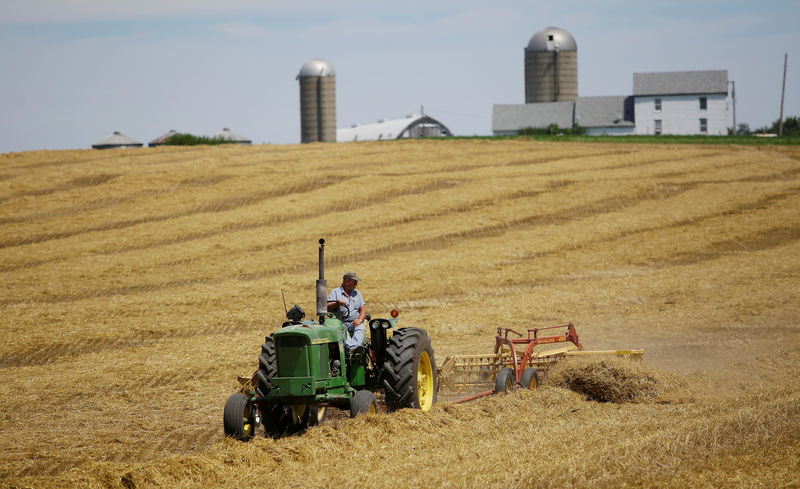Investing.com’s stocks of the week
GENEVA (Reuters) - Trading partners will demand more details from the United States at the World Trade Organization next week about its planned $12 billion aid package for U.S. farmers hurt by the Trump administration’s tariff wars.
The U.S. aid package, announced in July, is intended to shield U.S. farmers from the repercussions of trade disputes between the United States and China, the European Union and others.
But other WTO members want more clarity on how long it will last and whether it adheres to WTO rules as it could have an impact on their own agriculture sectors and competition.
A compilation of written questions submitted to the WTO's regular agriculture committee meeting on Sept. 25-26 included questions from New Zealand, Japan, India, the European Union, Canada and Australia, all demanding more detail on the plan.
Australia asked when the plan would be formally notified to the WTO, how long it would go on, and how its various programs -- market facilitation, food purchase and distribution, and agricultural trade -- would fit into the WTO rules.
New Zealand said it was concerned the package would take the United States close to its total allowable farm subsidy of $19.1 billion, and sought an assurance it was a one-time payment that would not carry on in future.
A first $6 billion has already been made available, so Australia wanted to know what would trigger the roll-out of the second half of the package, and whether those funds would be available under the same programs as the first tranche.
It also asked how the U.S. Department of Agriculture came up with the formula for payouts under the $4.7 billion market facilitation program, which aimed to reflect the severity of trade disruption, with 50 percent of the producer's total 2018 actual production multiplied by the applicable rate.
Japan and Canada were concerned the market facilitation payouts could amount to excessive support for production.
The market facilitation program will make direct payments to producers of cotton, corn, fluid milk, pork, soybeans, sorghum and wheat, and Canada wanted to know if more products might be covered in future.
The $200 million trade promotion program was intended to mitigate "adverse effects of other countries' restrictions", but Australia wanted to know precisely what that meant.
"Could the United States confirm that this $200 million fund will not be used to subsidize the export of U.S. products to international markets?" Canada asked.
